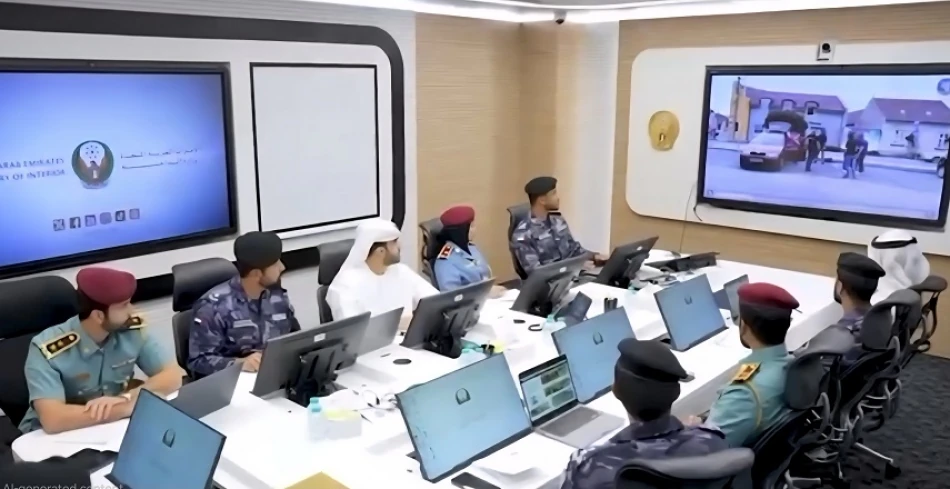
Multinational Security Coalition Led Drug Bust Seizes Over 822 Tons of Illicit Drugs Across Borders
Global Drug Bust Worth $2.9 Billion Reveals New Era of International Crime Fighting
A massive international operation spanning 25 countries has resulted in the seizure of over 822 tons of narcotics valued at $2.9 billion and the arrest of more than 12,500 suspects worldwide. The two-month coordinated effort, led by the International Security Alliance with significant UAE participation, represents the second major operation of its kind and signals a fundamental shift in how nations combat transnational organized crime.
Scale and Scope of Operation
The operation deployed coordinated air, sea, and land enforcement across four continents, involving law enforcement agencies from the Middle East, Europe, and the Americas. Participating nations included the UAE, Bahrain, Spain, Morocco, France, the Netherlands, Slovakia, and Italy, alongside multiple Latin American countries working through Ameripol, European nations coordinating via Europol, and additional partners including the Maldives, Jordan, and Nepal.
The sheer scale of seizures—822 tons of various narcotics—suggests criminal networks have expanded their operations significantly since similar international efforts began gaining momentum in the late 2010s. For context, this single operation captured more drugs than many individual countries seize in entire years.
Strategic Intelligence Gathering
Beyond the immediate seizures and arrests, the operation generated crucial intelligence on emerging criminal networks and evolving smuggling methodologies. This intelligence-sharing component represents perhaps the most valuable long-term outcome, as it enables participating nations to develop predictive models and preemptive strategies against future trafficking routes.
The bilateral relationships forged between specialized experts during the operation create permanent channels for rapid information exchange—a critical advantage when criminal organizations can shift routes and methods within weeks.
The UAE's Growing Security Influence
The UAE's prominent role reflects its strategic positioning as a global security player, building on its co-founding of the International Security Alliance with France in 2017. This participation aligns with the Emirates' broader strategy of establishing itself as an indispensable partner in international security frameworks, similar to Singapore's approach in Southeast Asia.
The UAE's geographic position between major drug-producing regions and consumer markets in Europe and Asia makes its participation particularly valuable. Its advanced port infrastructure and financial systems also provide unique capabilities for tracking both physical shipments and associated money flows.
Evolution of Transnational Crime Fighting
The International Security Alliance represents a new model of security cooperation that combines high-level strategic coordination with operational field collaboration. Unlike traditional frameworks that often suffer from bureaucratic delays, this approach enables rapid response to emerging threats.
The alliance's focus on crimes with global dimensions—particularly transnational organized crime—addresses a gap in traditional bilateral cooperation agreements. Criminal organizations have long exploited jurisdictional boundaries and varying legal systems; this coordinated approach levels the playing field.
Market and Economic Implications
The $2.9 billion value of seized narcotics represents a significant disruption to global drug markets, likely causing temporary price increases and supply chain reorganization. However, historical patterns suggest criminal organizations typically adapt within months, often by diversifying routes or shifting to synthetic alternatives that are harder to detect.
For legitimate businesses, particularly in shipping and logistics, the operation's success may lead to enhanced screening requirements and compliance costs. Companies operating in participating countries should expect increased scrutiny of cargo manifests and financial transactions, particularly those involving high-risk corridors.
Looking Forward
The operation's success will likely encourage expansion of the International Security Alliance model to other security challenges, including cybercrime and human trafficking. The proven ability to coordinate complex operations across multiple jurisdictions creates a template for addressing other transnational threats.
However, the ultimate measure of success will be whether this disruption leads to lasting degradation of criminal networks or merely temporary displacement. The intelligence gathered during this operation will be crucial in tracking how criminal organizations adapt and ensuring future operations stay ahead of evolving tactics.
Most Viewed News

 Sara Khaled
Sara Khaled






